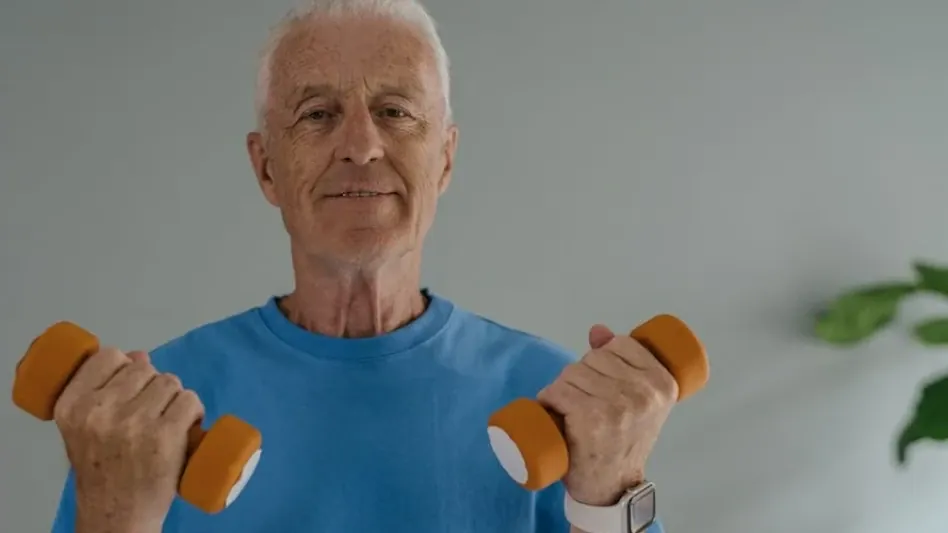Maintaining mobility and wellness after the age of fifty is crucial for a high quality of life, and with the right strategies, it is possible to continue thriving and living independently. Our bodies undergo various changes as we age that can impact our physical and mental health. Experts from multiple fields emphasize that with focused efforts, maintaining physical activity and managing weight can significantly contribute to healthy aging. This article delves into expert recommendations on how to stay active, manage weight, and uphold overall wellness, ensuring an enriching life experience despite the natural aging process.
The Importance of Physical Activity
Physical activity plays a fundamental role in maintaining mobility, mental health, and overall independence, especially as we age. According to Amy Cassady, a physical therapist at the Cleveland Clinic, good mobility is crucial for independent living, as it directly influences one’s ability to perform everyday tasks. Regular physical exercise not only benefits bones and heart health but also enhances emotional and social well-being. This, in turn, contributes to better mental health outcomes by alleviating anxiety and depression, which are common challenges among older adults. In fact, engaging in physical activities promotes the release of endorphins, often dubbed “feel-good hormones,” aiding in improved mood and emotional stability.
One significant misconception is that seniors should limit their physical activity, a notion that has been debunked by experts like Andrew E. Budson, MD. He highlights that reduced physical activity is a primary cause of the decreased strength and coordination commonly associated with aging. Rather than shying away from exercise, increasing the duration and intensity of workouts is essential to counteract bodily changes that come with advancing age. Enhancing strength and coordination through regular exercise not only benefits people of all ages but is particularly important for older adults. This underscores the necessity of incorporating more vigorous physical activity into daily routines, as it fundamentally supports overall health and well-being.
Combating Muscle Mass Loss
Muscle mass loss is a prevalent issue as we age, making it more challenging to perform daily activities. Dr. Brian Clark from the Ohio Musculoskeletal and Neurological Institute points out that without sufficient muscle, tasks like getting out of chairs or carrying groceries can become increasingly difficult. This highlights the significance of exercise in maintaining muscle mass and supporting these routine activities of daily living. To combat muscle mass loss effectively, incorporating a balanced mix of aerobic and strength-training exercises is recommended by experts.
Dr. Andrew Budson suggests dedicating at least thirty minutes to aerobic exercise five days a week. Activities such as brisk walking, swimming, or participating in aerobic classes are excellent options to keep the heart rate elevated and promote cardiovascular health. Additionally, it is crucial to engage in exercises that focus on strength, balance, and flexibility for a total of two hours weekly. Practices like yoga or Pilates are favorable as they improve muscle tone while also enhancing balance and flexibility. Regular engagement in these exercises not only helps in sustaining muscle mass but also fosters improved posture and reduced risk of falls, which is vital for older adults.
Personalizing Exercise Routines
While strength training is indispensable for maintaining muscle health, it doesn’t solely rely on lifting heavy weights. Dr. Clark supports the notion of alternative workouts such as power yoga, a discipline that combines strength building, flexibility, and some cardiovascular work. Personalizing exercise routines by selecting activities that one enjoys can lead to consistent practice and better adherence to exercise schedules. Enjoyable activities can range from dancing to cycling, as the key is sustained engagement. Tailoring an exercise regimen to include a variety of enjoyable activities can greatly enhance motivation and continuity.
Building endurance stands as another crucial component of maintaining mobility and overall health. For those new to regular physical activity, starting an exercise program might initially feel exhausting, but gradual progression is paramount. Amy Cassady suggests beginning with short durations, possibly five or ten minutes of simple standing exercises, and gradually increasing these durations. This measured approach helps build endurance without overwhelming oneself. Integrating rest days between sessions is equally important, as these intervals allow the body to recover, alleviate soreness, and contribute to a more sustainable and effective exercise routine.
The Role of Weight Management
Weight management plays a significant role in maintaining mobility and wellness as we age. A study led by Professor Anita Wluka from Monash University illuminated the potential consequences of even minor weight gain, demonstrating its correlation with increased back pain and disability over time. Monitoring 695 men over two decades, the study found that individuals experiencing low-intensity pain and disability early on faced heightened risks as their weight increased. These findings underscore the broader implications of weight gain for both younger populations and older adults, making weight management a critical aspect of wellness.
The study’s results stress the importance of maintaining muscle mass, particularly for those who develop severe back pain and resultant disabilities. Efforts must be focused on exercising strategies that not only prevent weight gain but also sustain muscle health. The varying physical responses between men and women should be addressed with tailored strategies that consider gender-specific health needs. Implementing a balanced diet, alongside regular physical activity, can contribute significantly to weight management and overall wellness. Monitoring weight and integrating nutrition plans that support muscle health are practical measures to alleviate the risks associated with weight gain, thus enhancing daily functional abilities.
Psychological Aspects of Exercise
The psychological aspects of exercise play an equally important role in maintaining wellness, particularly for those in their fifties and beyond. For many individuals, the notion of committing to a regular exercise regime may not be appealing initially. However, finding enjoyable activities outside of the traditional gym setting, such as hiking, gardening, or participating in recreational leagues, can help maintain motivation and engagement. Viewing exercise as an integral part of daily life rather than a mere chore can significantly improve adherence to an active lifestyle. This shift in perspective cultivates a more positive attitude towards staying active and encourages long-term commitment.
It is essential to recognize that starting an exercise habit at any age yields substantial benefits. Mid-life, in particular, is emphasized as a critical period for initiating an exercise regimen. Dr. Clark emphasizes that mid-life hand grip strength can predict future disability, underscoring the importance of beginning to exercise as early as possible. Research further reassures that even individuals in their nineties can gain muscle mass and improve physical functioning with the right exercise regimen. This insight reinforces the idea that it is never too late to start exercising, thereby fostering improved mobility and quality of life regardless of age.
Holistic Approach to Physical Health
Maintaining mobility and wellness after turning fifty is essential for sustaining a high quality of life. With the correct strategies, it’s entirely possible to continue thriving and living independently. As we age, our bodies undergo numerous changes that can affect both our physical and mental health. Specialists from various fields stress that with dedicated efforts, staying physically active and managing weight can greatly help in promoting healthy aging. This article delves into expert advice on staying active, controlling weight, and preserving overall well-being, all of which are crucial for an enriched life experience despite the natural aging process. Additionally, it highlights the importance of regular exercise, balanced nutrition, and mental health care, which are pivotal in keeping the body and mind in good shape. Small but consistent actions, such as walking daily, eating a varied diet, and engaging in social activities, can profoundly impact one’s health positively. Adopting these practices into one’s daily routine can lead to lasting benefits, ensuring a fulfilling and active lifestyle in the later stages of life.









